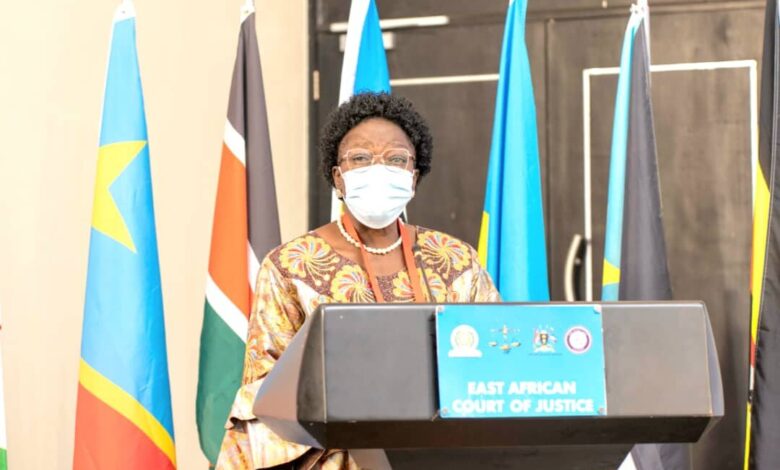Kadaga advises EACJ to harmonize judicial processes in the region
The East African Court of Justice is one of the organs of the East African Community established under Article 9 of the Treaty for the Establishment of the East African Community.

The First Deputy Prime Minister and Minister of EAC Affairs, Rebecca Alitwala Kadaga, has called on the East African Court of Justice (EACJ) to devise mechanisms that ensure systematic dispensation of justice at the national and regional levels.
Kadaga said partner states are obligated under Article 126 of the Treaty to enhance cooperation in legal and judicial matters.
She said this can be achieved through harmonization of legal training and certification, standardization of judgments of courts and publication of law reports for jurisprudential purposes.
Kadaga, who opened up the 2nd Annual East African Court Of Justice Judicial Conference at Mestil Hotel in Kampala, highlighted that the EACJ has since its inception done a commendable job in passing judgments that have impacted human rights jurisprudence within the region and beyond as well as strengthening the East Africa Community.
“It is, therefore, our noble obligation as citizens of the East African Community to relentlessly support this court for the meaningful realization of the integration agenda,” Kadaga said.
Adding: “Suffice to note that this conference seeks to strengthen collaboration between the national judiciaries and the East African Court of Justice, increase awareness among the judges, judicial officers and legal practitioners in the region on their role in enhancing access to justice by the citizenry,”
Kadaga noted that Uganda is fully committed to supporting the East African Court of Justice and the East African Community integration agenda, particularly through observing obligations under the Treaty.
She said it is Uganda’s cardinal duty and its citizens to make the EAC regional integration a reality by entrenching the spirit of good governance and rule of law.
“I’m fully aware that after this conference, the East African Court of Justice shall hold its court session in Uganda where several cases have been cause-listed at both the First Instance and Appellate divisions of the Court.
“Enough preparations have been made and the government of Uganda shall provide all the requisite support to make the stay of both the judges and other court users and staff as comfortable as possible,” she explained.
The East African Court of Justice is one of the organs of the East African Community established under Article 9 of the Treaty for the Establishment of the East African Community.
Established in November 2001, the Court’s major responsibility is to ensure the adherence to law in the interpretation and application of and compliance with the EAC Treaty.







